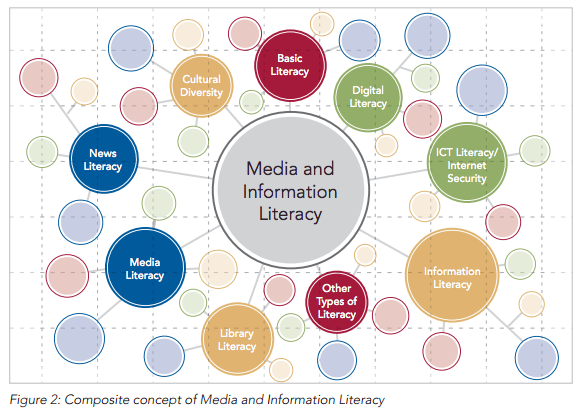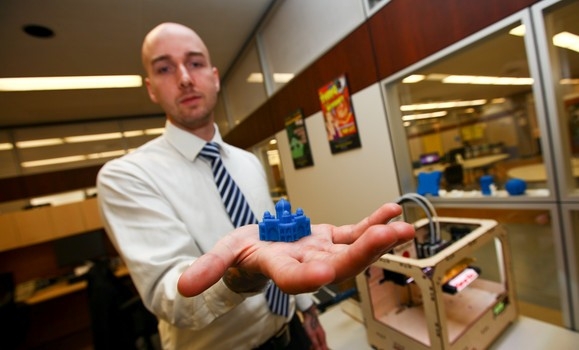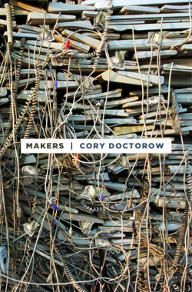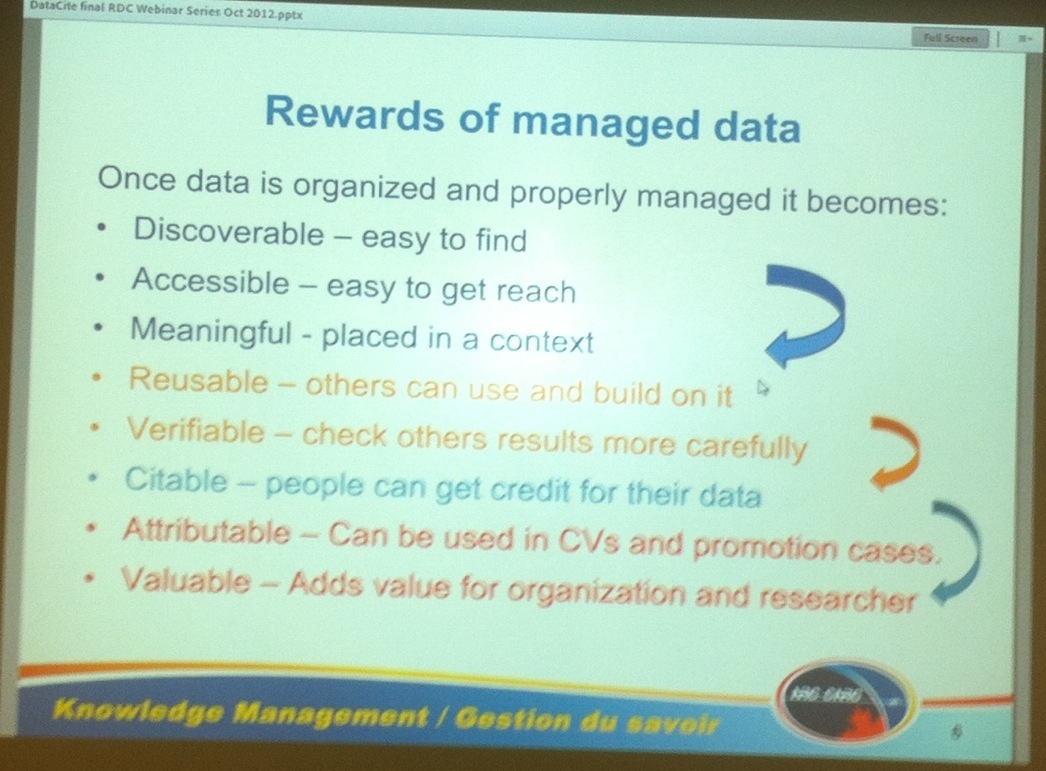What up at StatsCan
A collague passed on this interesting article by Andrew Duffy from The Ottawa Citizen dated August 30, 2014, titled “The State of StatsCan Survey“. Mr Duffy provides important information about our national statistical agency.
A collague passed on this interesting article by Andrew Duffy from The Ottawa Citizen dated August 30, 2014, titled “The State of StatsCan Survey“. Mr Duffy provides important information about our national statistical agency.
A colleague of mine highlighted a few articles which explain how university libraries are engaging faculty and providing assistance to switch to open textbooks. Here are the links:
– For more on open textbooks
– The Alt textbook from Temple’s Teaching and Learning Technology Roundtable
– CBC radio (Calgary) interview about open textbooks
The American Library Association just published a report by Canadian librarian Carmen Kazakoff-Lane called “Environmental Scan of OERs, MOOCs, and Libraries: What Effectiveness and Sustainability Means for Libraries’ Impact on Open Education” (pdf).
Of particular interest is the 6-page bibliography (which I will reproduce in the comments section of this post).

Composite concept of Media and Information Literacy from UNESCO’s Global media and information literacy assessment framework: country readiness and competencies 2013 p. 31
A central component of UNESCO’s Media and Information Literacy strategy, the Global MIL Assessment Framework would enable Member States to carry out comprehensive assessments of the information and media environment, and to monitor at the regional and national level the extent to which citizens have acquired MIL competencies, particularly targeting teachers in service and training. This evidence-based information will subsequently help Member States monitor the effectiveness of the implementation of education and ICT policies in developing 21st century capacities, and help to design new strategies and action-oriented plans that fit best within country-specific contexts and conditions.
The publication presents an overall assessment framework composed of two tiers: country readiness, and assessment of competencies. It also includes a plan for national adaptation as well as concrete suggestions for data collection, analysis and application. It is intended as a living document to be further tested, adjusted and adapted to national needs and circumstances by its users – policy decision makers, teachers and local professional communities in information, media and education.
The 150+ page document is available for free in PDF format from UNESCO .
In fact, UNESCO has launched an open repository under creative commons licences for all of their publications and more !
 I just learned that Mike Groenendyk is joining Concordia University Libraries as a fellow business librarian. Michael comes to us from Dalhousie University Libraries, where he’s had quite a bit of impact !
I just learned that Mike Groenendyk is joining Concordia University Libraries as a fellow business librarian. Michael comes to us from Dalhousie University Libraries, where he’s had quite a bit of impact !
In my lazy-yet-mysteriously-efficient-googling, I’ve stumbled on this really interesting project to bring 3D printing to the DAL Libraries, funded by CARL. Watch a YouTube video of a joint presentation at the Access 2012 conference:
[youtube=http://www.youtube.com/watch?v=hWqdQZ1FowY&w=560&h=315]
Also if interest is this video from PBSoffbook on 3D printing:
[youtube=http://www.youtube.com/watch?v=X5AZzOw7FwA&w=560&h=315]
My favorite use of 3D printing so far? Making the characters of the stop-motion animation film ParaNorman. That and a harmonica. Harmonicas are cool.
Also of interest is this thread from the blog at MakerBot on 3D printing in Libraries.
 If you want to read up on the potential of 3D printing, I highly recommend a novel by Cory Doctorow called Makers, available in print or free download. I devoured it during my summer vacation and it really speaks to the potential of this technology. The protagonists are two hacker/artists and they meander through a seemingly probably web of open communities, fans, fellow hackers and corporations spanning the evil/good axis. I personally thought that there was just a tad too much romantic melodrama, but in the end it was pale in comparison with Cory’s vision about 3D printing.
If you want to read up on the potential of 3D printing, I highly recommend a novel by Cory Doctorow called Makers, available in print or free download. I devoured it during my summer vacation and it really speaks to the potential of this technology. The protagonists are two hacker/artists and they meander through a seemingly probably web of open communities, fans, fellow hackers and corporations spanning the evil/good axis. I personally thought that there was just a tad too much romantic melodrama, but in the end it was pale in comparison with Cory’s vision about 3D printing.
Google Reader is dead. Long live Google Reader. I’ve presented on RSS feeds before on this blog, but now I have a new feed aggregator. See also a presentation I held, in French, on blogging as a doctoral student (slides here).
Feedly Logo
[youtube http://www.youtube.com/watch?v=8so2aBH7uEI&w=640&h=360]
I gave a talk at the e.Scape conference at Concordia University on the topic of :
The unexpected journey from a 60 minute lecture to a MOOC: a librarian’s mid-way report
Here is the description:
Information Literacy can be understood as the curriculum Librarians must curate without a classroom. Traditionally, this has meant organising library services as well as in-class lectures to advise students on research skills and strategies. But two factors have moved me to explore a new approach. Firstly, the Internet and open education offer incredible opportunities to disseminate knowledge and collaborate with colleagues worldwide. Secondly, as one of the Business Librarians working closely with the John Molson School of Business, my community is broad and their needs are as deep as their passion for their field. In order to meet this challenge, I’ve implemented a series of training videos in order to test a new curriculum deployment strategy.
Learning objectives for the session
Determine the resource implications of designing a MOOC, in terms of effort (time), technology and skill
Evaluate the relevance of the MOOC model for one’s teaching
I briefly discuss MOOCs. More on MOOCs here (this is the video I show in my lecture):
[youtube http://www.youtube.com/watch?v=eW3gMGqcZQc&w=560&h=315]
I position MOOCs as the extreme end of the elearning continuum – both in terms of structure and pace. I may never achieve this end-game in my development of curriculum and learning objects. In fact, I realistically envision that I will develop a series of learning objects that will be embedded in various courses throughout the undergraduate experience at the John Molson School of Business. Taken as a whole, these learning objects may constitute enough content to be called a MOOC or an online class. But for now, I am focussing on developing my curriculum and building meaningful learning objects from that.
I’m attending a WebCast of DataCite, CISTI’s research data management program. I like this slide to answer “why manage data?”:

The goal is to assign a DOI to datasets used in research.
An interesting read, this post about the Open Repository conference in Edinburg. there is much talk of including raw data in IRs:
Just about everyone was discussing RDM, or Research Data Management. It has become clear that institutional repositories must not only manage scholarly publications, but the data that was created through observation and experimentation or collected and published, in order to support the “re-” activities: review, reuse, replicability and reproducibility. RDM platforms are needed to help researches capture and share and publish their datasets. The public-facing discovery infrastructure is but a small part of this effort: the greater need and effort is in capturing data from the original instruments and formats and the transfer and documentation of datasets in a reliable, documented way to support a forensic level of authenticity for future researchers. The Digital Curation Centre has a great blog post reviewing some of the sessions on this topic.
UNESCO releases Paris Open Education Resources (OER) Declaration:
OERs are teaching, learning or research materials that are in the public domain or released with an open license that allows for free use, adaptation, and distribution. UNESCO has long been a champion of OERs and continues to promote them through its Education, and Communication and Information Sectors.
“Based on the Paris OER Declaration, a comprehensive UNESCO OER Programme and strong global partnerships, we hope that at least 12 Member States will adopt national OER policies by 2015,” said Abel Caine, Congress organizer and UNESCO Programme Specialist for OER.
Here is the full text of the Paris OER Declaration
:
2012 WORLD OPEN EDUCATIONAL RESOURCES (OER) CONGRESS UNESCO, PARIS, JUNE 20-22, 2012
2012 PARIS OER DECLARATION
Preamble
The World OER Congress held at UNESCO, Paris on 20-22 June 2012, Mindful of relevant international statements including:
The Universal Declaration of Human Rights (Article 26.1), which states that: “Everyone has the right to education”;
The International Covenant on Economic, Social and Cultural Rights (Article 13.1), which recognizes “the right of everyone to education”;
The 1971 Berne Convention for the Protection of Literary and Artistic Works and the 1996 WIPO Copyright Treaty;
The Millennium Declaration and the 2000 Dakar Framework for Action, which made global commitments to provide quality basic education for all children, youth and adults;
The 2003 World Summit on the Information Society, Declaration of Principles, committing “to build a people- centred, inclusive and development-oriented Information Society where everyone can create, access, utilize and share information and knowledge”;
The 2003 UNESCO Recommendation concerning the Promotion and Use of Multilingualism and Universal Access to Cyberspace;
The 2005 UNESCO Convention on the Protection and Promotion of the Diversity of Cultural Expression, which states that: “Equitable access to a rich and diversified range of cultural expressions from all over the world and access of cultures to the means of expressions and dissemination constitute important elements for enhancing cultural diversity and encouraging mutual understanding”;
The 2006 Convention on the Rights of People with Disabilities (Article 24), which recognises the rights of persons with disabilities to education;
The declarations of the six International Conference on Adult Education (CONFINTEA) Conferences emphasising the fundamental role of Adult Learning and Education.
Emphasizing that the term Open Educational Resources (OER) was coined at UNESCO’s 2002 Forum on Open Courseware and designates “teaching, learning and research materials in any medium, digital or otherwise, that reside in the public domain or have been released under an open license that permits no-cost access, use, adaptation and redistribution by others with no or limited restrictions. Open licensing is built within the existing framework of intellectual property rights as defined by relevant international conventions and respects the authorship of the work”;
Recalling existing Declarations and Guidelines on Open Educational Resources such as the 2007 Cape Town Open Education Declaration, the 2009 Dakar Declaration on Open Educational Resources and the 2011 Commonwealth of Learning and UNESCO Guidelines on Open Educational Resources in Higher Education;
Noting that Open Educational Resources (OER) promote the aims of the international statements quoted above;
Recommends that States, within their capacities and authority:
a. Foster awareness and use of OER.
Promote and use OER to widen access to education at all levels, both formal and non-formal, in a perspective of lifelong learning, thus contributing to social inclusion, gender equity and special needs education. Improve both cost-efficiency and quality of teaching and learning outcomes through greater use of OER.
b. Facilitate enabling environments for use of Information and Communications Technologies (ICT).
Bridge the digital divide by developing adequate infrastructure, in particular, affordable broadband connectivity,
widespread mobile technology and reliable electrical power supply. Improve media and information literacy and encourage the development and use of OER in open standard digital formats.
c. Reinforce the development of strategies and policies on OER.
Promote the development of specific policies for the production and use of OER within wider strategies for advancing education.
d. Promote the understanding and use of open licensing frameworks.
Facilitate the re-use, revision, remixing and redistribution of educational materials across the world through open licensing, which refers to a range of frameworks that allow different kinds of uses, while respecting the rights of any copyright holder.
e. Support capacity building for the sustainable development of quality learning materials.
Support institutions, train and motivate teachers and other personnel to produce and share high-quality, accessible educational resources, taking into account local needs and the full diversity of learners. Promote quality assurance and peer review of OER. Encourage the development of mechanisms for the assessment and certification of learning outcomes achieved through OER.
f. Foster strategic alliances for OER.
Take advantage of evolving technology to create opportunities for sharing materials which have been released under an open license in diverse media and ensure sustainability through new strategic partnerships within and among the education, industry, library, media and telecommunications sectors.
g. Encourage the development and adaptation of OER in a variety of languages and cultural contexts.
Favour the production and use of OER in local languages and diverse cultural contexts to ensure their relevance and accessibility. Intergovernmental organisations should encourage the sharing of OER across languages and cultures, respecting indigenous knowledge and rights.
h. Encourage research on OER.
Foster research on the development, use, evaluation and re-contextualisation of OER as well as on the opportunities and challenges they present, and their impact on the quality and cost-efficiency of teaching and learning in order to strengthen the evidence base for public investment in OER.
i. Facilitate finding, retrieving and sharing of OER.
Encourage the development of user-friendly tools to locate and retrieve OER that are specific and relevant to particular needs. Adopt appropriate open standards to ensure interoperability and to facilitate the use of OER in diverse media.
j. Encourage the open licensing of educational materials produced with public funds.
Governments/competent authorities can create substantial benefits for their citizens by ensuring that educational materials developed with public funds be made available under open licenses (with any restrictions they deem necessary) in order to maximize the impact of the investment.
2012-06-22